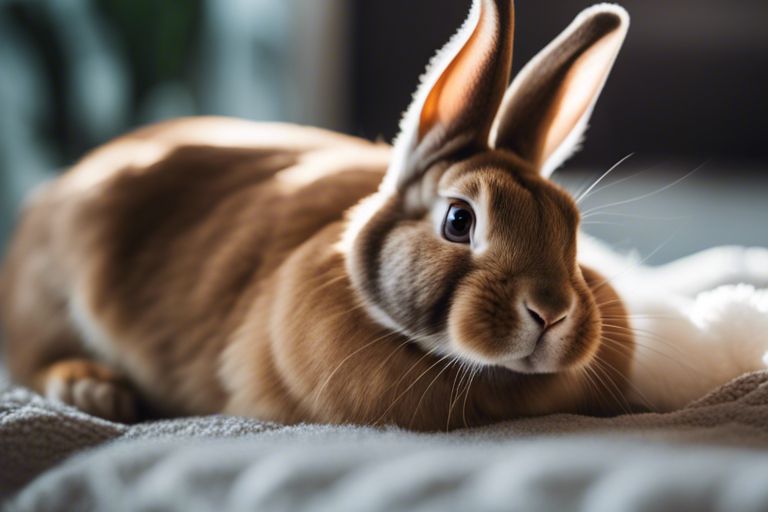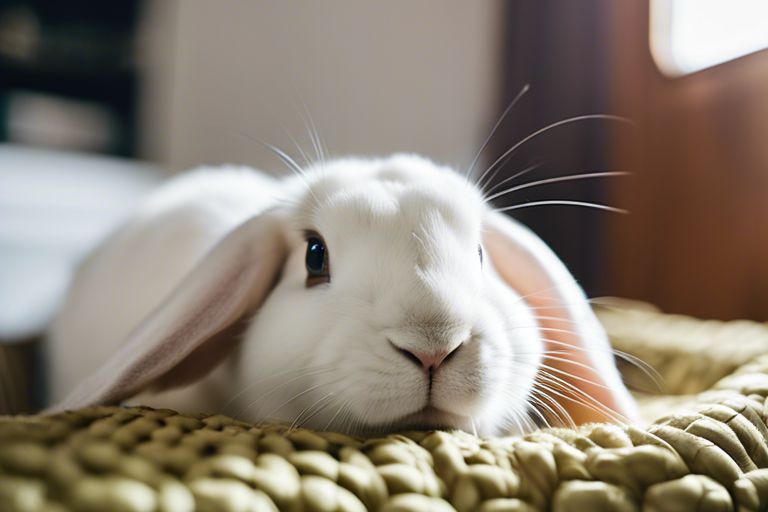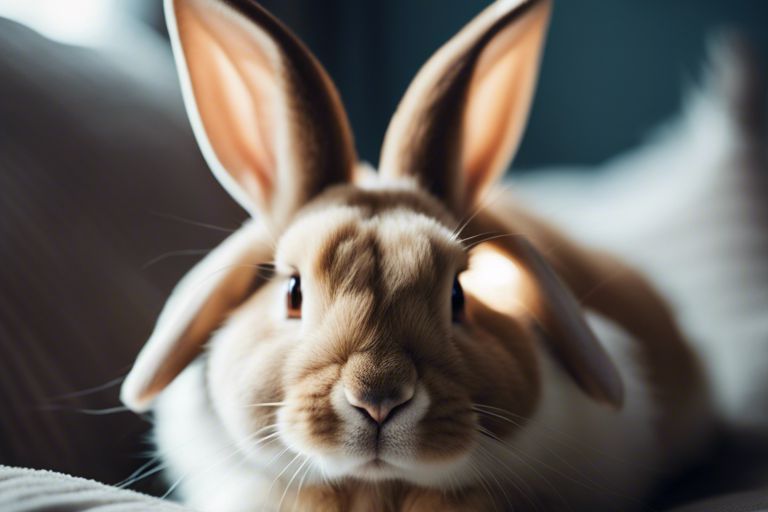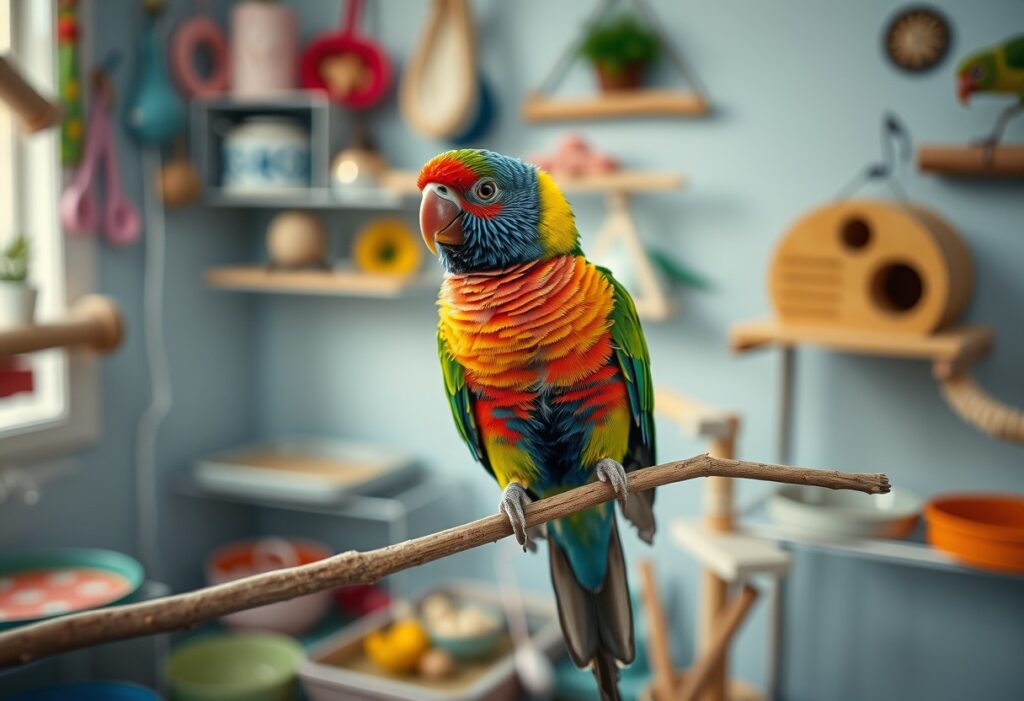The importance of spaying and neutering your rabbit cannot be overstated. Not only does it help control the rabbit population, but it also provides numerous benefits for your furry friend’s health and behavior. Spaying and neutering can prevent certain cancers, reduce the risk of reproductive diseases, and decrease hormonal behaviors such as aggressiveness and spraying. By taking this proactive step, you are ensuring a healthier and happier life for your rabbit.

The Basics of Rabbit Reproduction
Before delving into the benefits of spaying and neutering your rabbit, it’s necessary to understand the basics of rabbit reproduction. Rabbits are known for their high reproductive rates, with female rabbits capable of giving birth to multiple litters in a single year. This ability to reproduce rapidly is a key factor in why rabbit overpopulation is a significant concern.
The Rabbit Reproductive Cycle
One of the unique aspects of rabbit reproduction is their induced ovulation, which means that females ovulate in response to mating. This can result in a high fertility rate, with a doe (female rabbit) able to conceive shortly after giving birth. The gestation period for rabbits is relatively short, lasting around 28-31 days, and a litter can range from 4 to 12 kittens. With such quick turnaround times between litters, rabbits can rapidly multiply if not properly managed.
The Impact of Overpopulation
Reproductive overcapacity is a significant issue when it comes to rabbits, as uncontrolled breeding can lead to overcrowded shelters, abandoned rabbits, and a strain on resources. In the wild, overpopulation can result in competition for food and habitat, impacting the overall ecosystem. Additionally, domestic rabbits that are not spayed or neutered can contribute to overpopulation and face health risks associated with uncontrolled breeding.
Understanding the reproductive cycle of rabbits and the impact of overpopulation is crucial in making informed decisions about spaying and neutering. By controlling the rabbit population through responsible pet ownership practices, we can help mitigate the risks associated with overpopulation and ensure the well-being of these beloved pets.
Health Benefits of Spaying and Neutering
Reduced Risk of Reproductive Cancers
Benefits of spaying female rabbits include a significantly reduced risk of developing reproductive cancers such as ovarian, uterine, and mammary tumors. By removing the reproductive organs, the chances of these types of cancers occurring are greatly minimized. This not only promotes the overall health and well-being of the rabbit but also ensures a longer and happier life.
Prevention of Uterine Disorders
Reduced risk of uterine disorders like pyometra is another vital advantage of spaying female rabbits. Pyometra is a life-threatening infection of the uterus that commonly affects unspayed female rabbits. By spaying your rabbit, you eliminate the risk of such potentially fatal conditions, providing them with a better quality of life.
Spaying your female rabbit is a crucial step in preventing uterine disorders as these conditions can be difficult to detect in the early stages. By opting for spaying, you are not only ensuring your rabbit’s reproductive health but also safeguarding them against serious uterine complications that could arise in the future.
Increased Lifespan
An important outcome of neutering male rabbits is an increased lifespan. Neutering helps in reducing aggressive behaviors and the urge to roam in search of a mate. This, in turn, decreases the likelihood of accidents, injuries, or conflicts with other rabbits. By neutering your male rabbit, you are not only enhancing their quality of life but also extending their lifespan.
Neutering male rabbits can positively impact their behavior, making them calmer and more affectionate companions. This procedure not only benefits the rabbit’s overall well-being but also contributes to a healthier and happier relationship between you and your furry friend.
Reproductive
Overall, spaying and neutering your rabbit offer numerous health benefits that go beyond reproductive well-being. These procedures play a significant role in ensuring a longer, healthier life for your beloved pet by reducing the risks of various reproductive cancers, disorders, and behavioral issues. Considering the positive impact on your rabbit’s health and longevity, spaying and neutering are necessary steps in responsible rabbit ownership.

Behavioral Advantages
Decreased Aggression
One of the key behavioral benefits of spaying and neutering your rabbit is the decreased aggression that often accompanies these procedures. Intact rabbits, especially males, are more prone to displaying aggressive behaviors such as territoriality, biting, and mounting. By spaying or neutering your rabbit, you can significantly reduce these behaviors and create a calmer and more manageable pet.
Mitigation of Spraying and Marking Behaviors
Behavioral changes related to spraying and marking are common in unaltered rabbits. One of the primary reasons for spaying or neutering your rabbit is to mitigate these behaviors. Rabbits, especially males, tend to mark their territory with urine, which can be a source of frustration for owners. Spaying or neutering can help reduce or even eliminate this unwanted behavior.
Aggression and territorial marking are instinctual behaviors in rabbits that can be challenging to manage without spaying or neutering. These procedures can help create a more harmonious environment for both you and your rabbit by minimizing these natural tendencies.
Enhanced Social Interactions with Humans and Other Rabbits
Advantages
Spaying or neutering your rabbit can also enhance both their social interactions with humans and other rabbits. Altered rabbits tend to be more affectionate, less territorial, and more open to bonding with both their human caretakers and other rabbits. This increased sociability can lead to a happier and more fulfilling relationship between you and your pet.

Population Control and Welfare
The Role in Preventing Overcrowding in Shelters
All responsible pet owners understand the importance of spaying and neutering their rabbits. By preventing unwanted litters, this simple procedure plays a crucial role in curbing the issue of overcrowding in animal shelters. Every year, countless rabbits end up in shelters due to overbreeding or accidental litters. Spaying and neutering not only prevent these rabbits from adding to the already overwhelming population in shelters but also promote responsible pet ownership and ensure the welfare of these animals.
Easing the Strain on Rescue Groups and Facilities
Control measures such as spaying and neutering help to ease the strain on rescue groups and facilities dedicated to helping abandoned and neglected animals. These organizations are often overwhelmed with the high influx of rabbits and other small pets in need of care and homes. By reducing the number of unwanted litters through spaying and neutering, we can assist these groups in allocating their resources more effectively and providing better care for the animals under their protection.
Spaying and neutering are not only beneficial for the individual rabbits but also for the collective welfare of the rabbit population as a whole. It is a proactive step towards creating a more sustainable and compassionate community for these beloved pets.
Timing and Age Considerations
The Ideal Age for Spaying or Neutering
For most rabbits, the ideal age for spaying or neutering is between 4 to 6 months old. At this age, rabbits have reached sexual maturity but are still young enough for the procedure to be safe and have minimal impact on their health. Spaying or neutering at this age also helps prevent unwanted behaviors such as aggression, urine spraying, and escape attempts.
Risks and Considerations for Young and Older Rabbits
An important consideration for young rabbits is that they may not have fully developed reproductive organs, which can increase the risks associated with surgery. On the other hand, older rabbits, particularly those over 5 years old, may have age-related health issues that can complicate the procedure. It is crucial to consult with a veterinarian to assess the risks and benefits of spaying or neutering at different ages for your individual rabbit.
Ideal timing for spaying or neutering your rabbit should be based on a balance between age, health, and reproductive status. Consulting with a knowledgeable veterinarian can help you make an informed decision that will benefit your rabbit’s health and well-being in the long run.
The Surgical Process and Aftercare
Pre-surgical Evaluation
With any surgical procedure, a crucial step is the pre-surgical evaluation of the rabbit. Your veterinarian will conduct a thorough physical examination to ensure your rabbit is healthy enough for surgery. Blood tests may be necessary to check for any underlying health issues that could affect the procedure.
The Procedure Explained
Presurgical procedures for spaying and neutering rabbits involve the use of anesthesia to ensure the animal remains pain-free and unaware during the operation. The veterinarian will carefully remove the reproductive organs to prevent future breeding and help with population control. The procedure is relatively quick and is commonly performed with minimally invasive techniques.
To ensure the safety and well-being of your rabbit during the spaying or neutering process, it is imperative to follow the post-operative care instructions provided by your veterinarian closely.
Post-operative Care and Recovery
For rabbits that have undergone spaying or neutering, post-operative care is crucial for a smooth recovery. Your veterinarian will likely recommend a quiet and warm recovery space for your rabbit to rest and heal. It is important to monitor their behavior, appetite, and incision site for any changes or signs of infection.
Recovery time can vary for each rabbit, but most will start to show signs of improvement within a few days. Keep your rabbit confined to a safe and comfortable area to prevent excessive movement that could disrupt the healing process. Make sure to provide them with fresh water, a balanced diet, and any medications prescribed by your veterinarian to aid in their recovery.
Common Myths and Misconceptions
Spaying/Neutering and Weight Gain
Misconceptions often arise about spaying and neutering procedures leading to weight gain in rabbits. Some believe that altering a rabbit’s reproductive organs automatically leads to obesity. However, this is not entirely accurate. Weight gain in rabbits after spaying or neutering is more likely due to overfeeding or lack of exercise, rather than the surgery itself.
Personality Changes Post-Surgery
Misconceptions exist around personality changes in rabbits after being spayed or neutered. Some individuals fear that altering their rabbit will result in a complete personality overhaul, making them less friendly or playful. In reality, spaying and neutering typically have minimal impact on a rabbit’s core personality traits.
For instance, a rabbit’s general temperament and behavior are influenced by factors such as genetics, upbringing, and environment rather than their reproductive status. While rabbits may exhibit subtle changes in behavior post-surgery, such as reduced aggression in males, these adjustments are often positive and can contribute to a healthier and more balanced life for your furry companion.
Final Words
Presently, spaying and neutering your rabbit is not only important for controlling the rabbit population but also offers numerous benefits for their health and behavior. From preventing reproductive cancers to reducing aggression and marking behaviors, the procedure can significantly improve your rabbit’s quality of life. By spaying and neutering your rabbit, you are not only being a responsible pet owner but also ensuring a happier and healthier life for your beloved furry friend.
FAQ
Q: Why should I spay or neuter my rabbit?
A: Spaying or neutering your rabbit can prevent health issues, such as uterine cancer in females and testicular cancer in males. It can also help reduce aggressive behavior, urine spraying, and territorial marking.
Q: At what age should I spay or neuter my rabbit?
A: It is recommended to spay or neuter your rabbit between 4 to 6 months of age. Female rabbits can be spayed as soon as they reach sexual maturity, while male rabbits can be neutered once their testicles have descended.
Q: How will spaying or neutering my rabbit benefit their behavior?
A: Spaying or neutering can lead to a calmer and more affectionate rabbit. It can reduce hormonal behaviors such as aggression, mounting, and urine spraying. It can also make litter training easier.
Q: Are there any risks associated with spaying or neutering a rabbit?
A: As with any surgical procedure, there are risks involved with spaying or neutering a rabbit. However, these risks are minimal when performed by a skilled veterinarian experienced in rabbit surgeries. It is important to discuss any concerns with your veterinarian before the procedure.
Q: What are the long-term benefits of spaying or neutering my rabbit?
A: Besides preventing certain health issues and improving behavior, spaying or neutering your rabbit can also help combat overpopulation. By reducing the number of unwanted rabbits, you are contributing to the welfare of rabbits as a whole and promoting responsible pet ownership.











